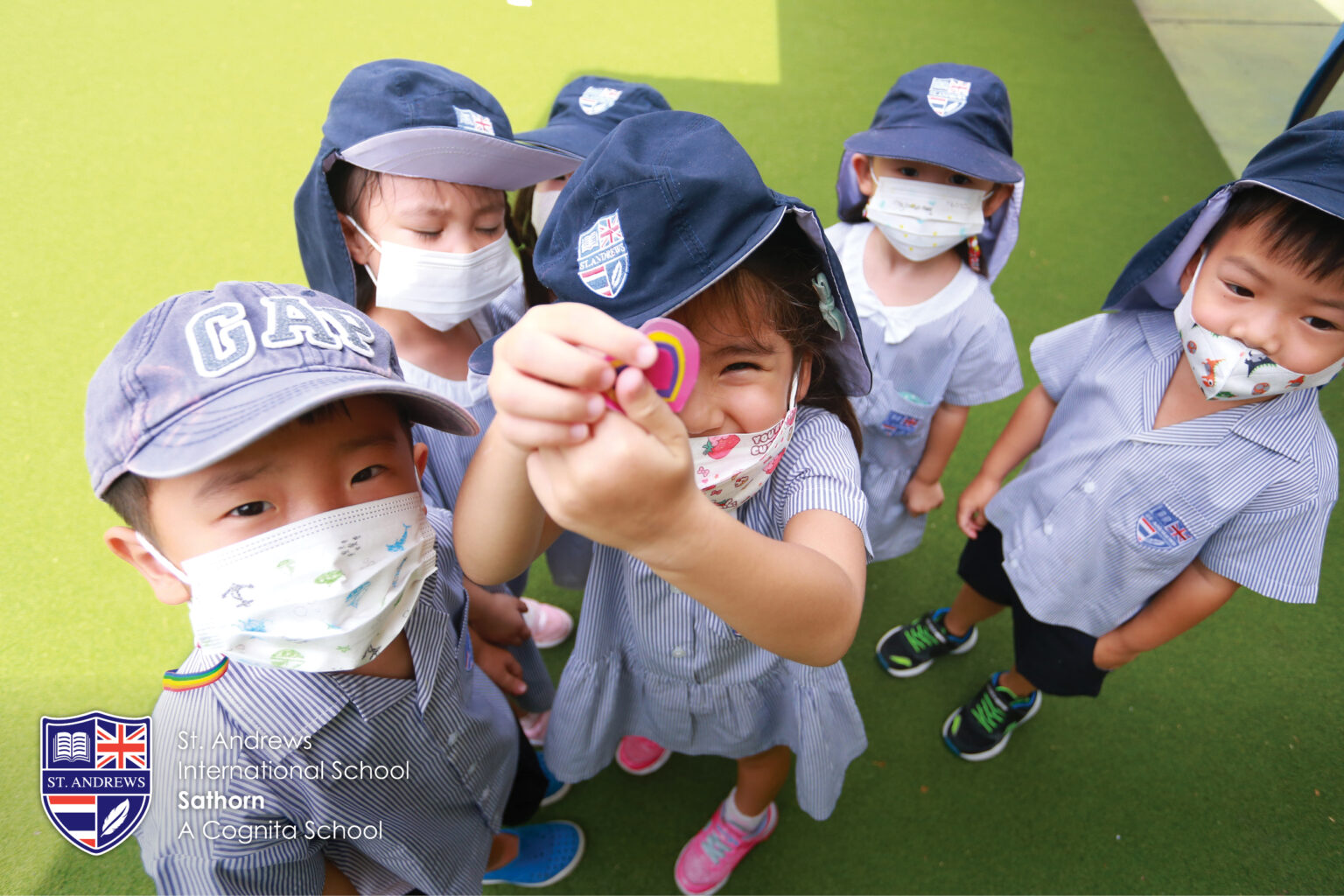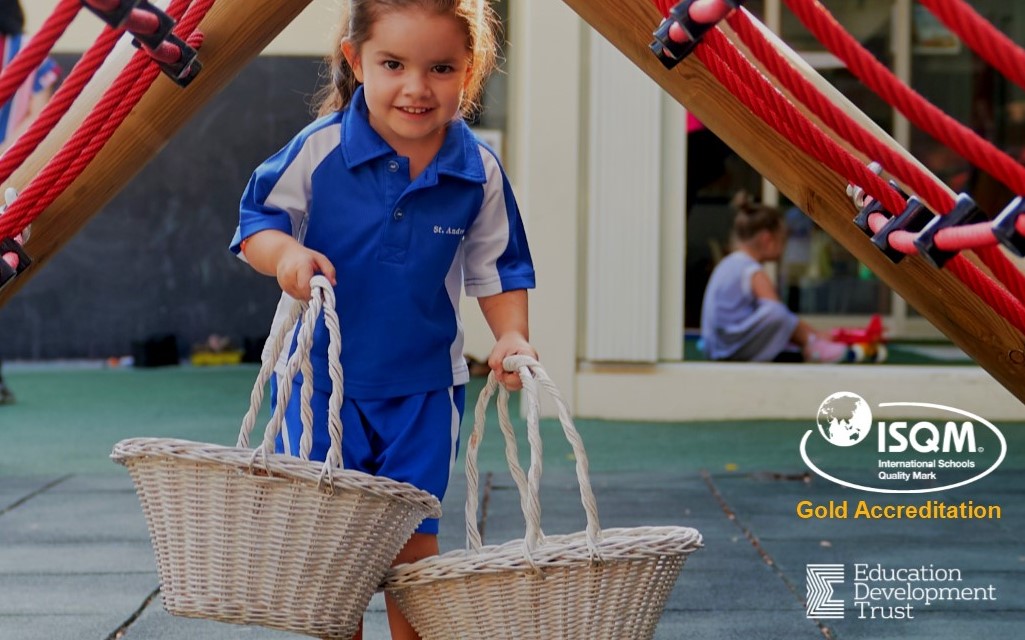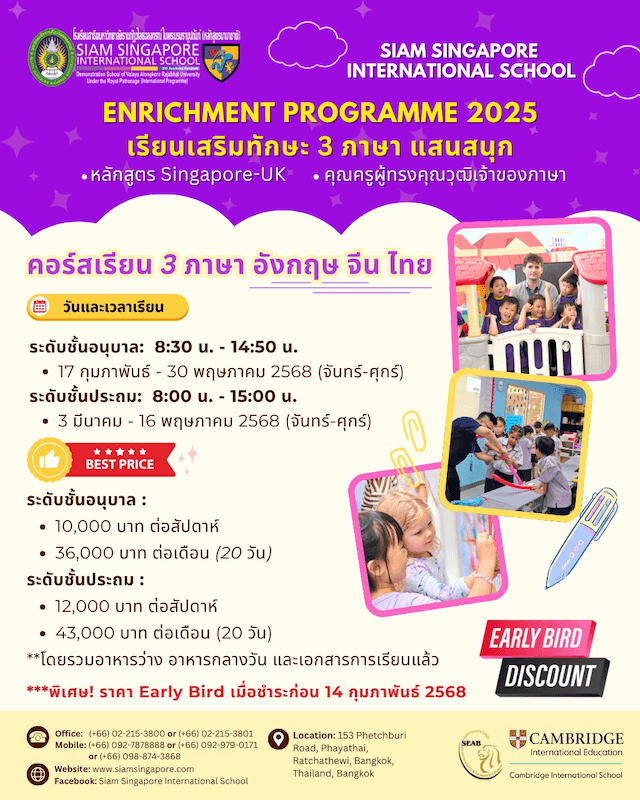We often book activities to keep our children busy while they are out of school, but please don’t forget the importance of unstructured free play, where children’s imaginations run wild without any confining guidelines or rules. There are numerous benefits to such play, such as increased executive functions, which control and manage cognitive processes. Kids can better develop skills such as working memory, impulse control, decision-making, troubleshooting, and organisational skills.
Miss Mia Owens, our Early Years Foundation Stage Coordinator at St. Andrews International School, Sathorn shares, “We focus on the importance of unstructured free play by ensuring that we plan for extended periods of child directed play. Our learning environments are designed to encourage independence, challenge and allow children to take the leading role in their play.
What does that translate into for real life? Basically, children who engage in free play are more likely to learn self-direction, work independently in the classroom, establish their own goals, concentrate better in chaotic settings and engage well with their peers”.

Below are some tips and ideas for unstructured free play:
- The play and activities are child-led, leading to creative and improvised play
- Unstructured play doesn’t necessarily mean a child plays alone – friends, siblings, parents and caregivers are take part in unstructured play, especially with a toddler or pre-schooler
- Pretend play is great – build tents in the living room, turn the sofa into an airplane, create an adventure scenario in the garden, etc. – just let kids make their own plans and rules
- Have children write their own story and turn it into a book they make and illustrate themselves
- Build a free-form city with blocks or other materials
- Make up and sing silly songs out loud

- Set up an arts and craft station with recycled materials (paper towel rolls, plastic milk containers, string, etc.) and ask children to invent something
- Spend time playing with your children; for example, if your child wants to play “hospital” and asks you to be the patient, comply with the request and watch his or her approach
- Encourage and participate in the unstructured play, knowing that children are developing valuable skills that will help them in the classroom and throughout their lives
“Play is often talked about as if it were a relief from serious learning. But for children, play is serious learning.” Mr. Rodgers.
Children are their most creative and authentic self when given the space and freedom to express themselves through child directed play. Ideally children should be given an extended period of uninterrupted play, this allows them to develop problem solving skills, take appropriate risks and develop higher level thinking skills. It can be very tempted for parents or educators to offer help or direct children’s play. But our children do not always need our help and when our help is constantly offered then children stop trying to help themselves. By taking a step back and allowing children to direct their own play we are empowering them to become resilient and capable learners.
To hear more about St. Andrews International School Sathorn, click HERE.














